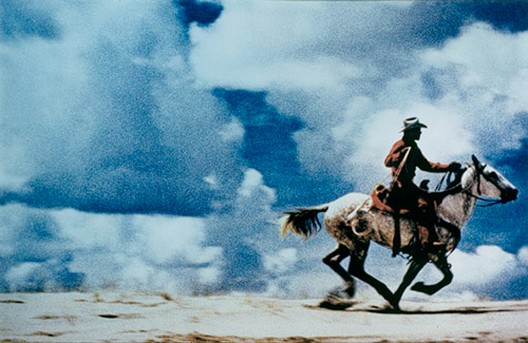Patrick Greaney
A fine line separates appropriation from administration. Richard Prince describes his rephotographing as the “managing” of images.(1) Vanessa Place also seems like a manager: her Twitter feed just reformats Gone with the Wind; and in the work of art that is her Facebook timeline, she repeats verbatim other poets’ status updates.

Appropriation and quotation might seem to be good examples of what Foucault calls governmentality. Intervening as little as possible, governmentality manages populations with the aim of unleashing their potential, and it encourages subjects to discover and actualize their true selves. It expands the biopolitical “‘right,’ beyond all the oppressions or ‘alienations,’ to rediscover what one is and all that one can be.”(2) Just as governmentality helps markets and people develop to their fullest, appropriation might seem to reveal its source material’s hidden truths and secret abilities. Prince and Place might be letting their pilfered images and texts be all they can be.
But appropriation may also resist the governmental management of images and texts. Governmentality produces certain kinds of subjectivities, and it also produces forms of resistance, ways to imagine “an alternate production of subjectivity,” “modes of representation that attempt to allow non-selfsame (non-identitaire) subjectivities to emerge.”(3) Foucault presents such resistance in a number of ways. He sees it in the “will not to be governed thus,” the will not to become the object of this or that particular form of government. This will appears in his texts as self-stylization and self-government, exemplars of which he finds in Baudelaire and in antiquity’s asceticism. “Modern man, for Baudelaire, is not the man who goes off to discover himself, his secrets and his hidden truth; he is the man who tries to invent himself.” Resistance is not self-discovery, but self-invention. For Foucault, “to be modern” – that is, to resist – “is to take oneself as object of a complex and difficult elaboration;” it is “to make one’s own history, fabricate history, as if through fiction.”(4)
Many avant-garde practices fictionalize just as Foucault proposes. And he himself often composes his texts using these practices. In his writings on antiquity, he discusses the collection of commonplaces as a method of subjectification, and in his essay “The Lives of Infamous Men,” he describes his project of publishing a book of quotations from archival documents written between 1660 and 1760. This project was never realized, but Foucault did publish three edited books, in which he does little more than quote documentary materials.(5) These quotational books return to the moments of conflict in which modern medical, legal, psychological, and criminological power formed, and they point to the contingency of those conflicts’ results, which have determined our understanding of the subject.
Foucault’s use of quotations complement his text “What is an Author?” in which he argues that the conventional notion of authorship–the creativity, originality, and liberty often ascribed to it–is a restricted and restricting multiplicity. It “impedes the free circulation, the free manipulation, the free composition, decomposition, and recomposition of fiction.” The identification of the author as a figure isolates and limits it. Although it would be “pure romanticism to imagine a culture in which the fictive would operate in an absolutely free state,” it is possible to imagine a society in which there would be no author function but, instead, another “system of constraint.”(6)
Appropriation, as practiced by Place, Prince, Foucault, and many artists and conceptual poets, may be just such a system of constraint, one that is analogous to governmentality’s minimalist interventions. But it’s merely analogous and not identical to it, because governmentality produces identities based on subjects’ hidden truths, while appropriating artists and writers manage texts and images with the aim of liberating themselves from the histories and identities that originate there. The will not to be governed would allow images and texts to speak truth, but not truth considered as adequation. For Foucault, the truth of quotational texts would not be a fact, message, or unalienated human essence but a moment when non-identity can be created.
As they appropriate, artists are not wholly themselves. There’s something else there when they copy and paste, when they repeat and alter an authorial act. It’s the awareness that what has been said and done can be repeated, and that in this repetition some kind of difference can emerge. Appropriation allows artists and writers to return to originary moments and use not only the finished result, the original images or texts, but also the openness of their emergence, the possibility that they might have turned out otherwise.
From Patrick Greaney, Quotational Practices: Repeating the Future in Contemporary Art (Minneapolis: University of Minnesota Press, 2014). Courtesy of University of Minnesota Press
http://www.upress.umn.edu/book-division/books/quotational-practices
1 Richard Prince, “Practicing Without a License,” quoted in Nancy Spector, ed., Richard Prince, 29.
2 Foucault, The History of Sexuality: An Introduction, 145 (translation modified).
3 Judith Revel, “Identity, Nature, Life: Three Biopolitical Deconstructions,” Theory, Culture, Society 26.6 (2009), 47.
4 Foucault, “What is Enlightenment?” in Politics of Truth, 56, 108-109.
5 Foucault, I, Pierre Rivière, Having Slaughtered my Mother, my Sister, and my Brother: A Case of Parricide in the 19th Century; Foucault, Herculine Barbin, Being the Recently Discovered Memoirs of a Nineteenth-Century French Hermaphrodite; Arlette Farge and Foucault, Le Désordre des familles: lettres de cachet des Archives de la Bastille au XVIIIe siècle.
6 Foucault, “What is an Author?” in The Essential Works of Foucault: Aesthetics, Epistemology, Method, 221-22.